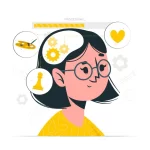Erick Erikson
It seems like you might be referring to Erik Erikson, a renowned developmental psychologist and psychoanalyst. Erikson is best known for his theory of psychosocial development, which outlines eight stages of human development spanning from infancy to late adulthood. In each stage, individuals encounter a specific psychosocial crisis that must be resolved for healthy development to occur.
Erikson’s theory emphasizes the interaction between individual development and societal influences, highlighting the importance of social relationships and cultural context in shaping personality. His work has had a significant impact on fields such as psychology, education, and sociology.
Biography of Erick Erikson
Birth of Erick Erikson
Erik Erikson was born on June 15, 1902. He was born in Frankfurt, Germany, as Erik Salomonsen. His biological father was an unnamed Danish man, and his mother, Karla Abrahamsen, was a young Jewish woman who later married Dr. Theodor Homburger, a pediatrician.
Erikson’s early life was marked by identity struggles, which later influenced his psychological theories, particularly his emphasis on identity formation and identity crises. He eventually immigrated to the United States and became a naturalized citizen in 1939. Throughout his life, Erikson made significant contributions to the field of psychology, particularly in the areas of psychoanalysis and developmental psychology.
Early life of Erick Erikson
Erik Erikson, born Erik Salomonsen, had a rather complex early life. He was born on June 15, 1902, in Frankfurt, Germany, to an unmarried Jewish woman named Karla Abrahamsen. His biological father’s identity remains unknown, and his mother married a physician named Theodor Homburger when Erikson was around three years old. Homburger adopted Erikson, and he grew up believing that Homburger was his biological father.
Erikson faced challenges related to his own identity, partly due to his mixed heritage (biologically Danish and Jewish by birth) and his stepfather’s Jewish background. These experiences likely influenced his later interest in identity development and identity crises.
Erikson’s interest in art and culture led him to study art and eventually travel to Vienna, where he became involved with the psychoanalytic community led by Sigmund Freud. He underwent psychoanalysis himself and began training as a psychoanalyst.
His early life experiences, combined with his immersion in psychoanalytic theory and practice, laid the foundation for his later work in psychology, particularly in the areas of developmental psychology and the exploration of identity formation across the lifespan.
Education of Erick Erikson
Erik Erikson’s education was quite varied and interdisciplinary, reflecting his wide-ranging interests and eventual contributions to psychology. His academic journey included:
- Art and Culture: Erikson initially pursued studies in art and explored cultural interests during his youth.
- Psychoanalysis: He became interested in psychoanalysis and studied under Anna Freud, Sigmund Freud’s daughter, in Vienna. He underwent psychoanalysis himself, which greatly influenced his understanding of human behavior.
- Education in Psychology: Erikson did not receive a formal higher education degree in psychology. However, his immersion in the psychoanalytic community provided him with a rich education in psychological theory and practice.
- Field Work: Much of Erikson’s education and understanding of human development came from his extensive fieldwork, including his work with children and families. He worked in various settings, such as schools, clinics, and hospitals, which provided him with practical insights into human behavior and development.
- Teaching and Academic Roles: Throughout his career, Erikson held teaching positions at various institutions, including Harvard University, the University of California, and Yale University. These roles allowed him to continue learning and sharing his knowledge with students.
Overall, Erikson’s education was eclectic and multifaceted, blending insights from art, psychoanalysis, and practical experience to develop his theories on human development and identity.
Relationship of Erick Erikson with his parents
Erik Erikson’s relationship with his parents was complex and had significant impacts on his development and later work. Here’s an overview:
- Biological Parents: Erikson was born to an unmarried Jewish woman named Karla Abrahamsen. The identity of his biological father remains unknown. This lack of knowledge about his biological father likely contributed to Erikson’s early struggles with identity.
- Stepfather – Theodor Homburger: Karla Abrahamsen married Theodor Homburger, a pediatrician, when Erikson was around three years old. Homburger adopted Erikson, and Erikson believed him to be his biological father for much of his life. Their relationship was reportedly strained, and Erikson later described Homburger as distant and uninvolved. This relationship likely influenced Erikson’s interest in identity formation and the role of parental figures in shaping one’s sense of self.
- Later Reflections: Erikson’s own experiences of identity confusion and search for belonging influenced his later work as a developmental psychologist. He emphasized the importance of understanding one’s identity in relation to family and societal influences. His psychosocial theory of development, which includes a stage focused on identity versus role confusion during adolescence, reflects his own struggles and insights into the role of parents and caregivers in shaping identity.
In summary, Erikson’s relationship with his parents, particularly his adoptive father, played a significant role in shaping his understanding of identity and human development, which later informed his influential theories in psychology.
Marital life of Erick Erikson
Erik Erikson’s marital life was an integral part of his personal and professional journey. He married Joan Serson Erikson, a Canadian-born artist, dancer, and writer, in 1930. Their marriage lasted until Erikson’s death in 1994. Joan played a crucial role in Erikson’s life, providing support and collaboration throughout their decades-long partnership.
Their marriage was marked by mutual respect, collaboration, and shared interests. Joan was not only Erikson’s life partner but also his collaborator in his professional work. She assisted him in his research and writing, and her insights often influenced his theories and ideas. Joan also contributed her artistic talents to Erikson’s work, including illustrations for some of his books.
Together, Erik and Joan Erikson had three biological children: Kai, Jon, and Sue. They also adopted a daughter, Karen, who was Joan’s daughter from a previous relationship.
Erik and Joan’s marriage exemplified a partnership that extended beyond personal life into professional endeavors, contributing to Erikson’s holistic understanding of human development and identity.
Social life of Erick Erikson
Erik Erikson had a rich and multifaceted social life that intersected with his personal and professional interests. Here are some aspects of his social life:
- Professional Circles: Erikson was deeply involved in the psychoanalytic community, particularly during his time in Vienna, where he studied under Anna Freud and became acquainted with prominent psychoanalysts such as Sigmund Freud. Throughout his career, he maintained connections with fellow psychologists, psychoanalysts, and scholars, collaborating on research, exchanging ideas, and attending conferences and seminars.
- Teaching and Academic Environment: Erikson held teaching positions at various universities, including Harvard University, the University of California, and Yale University. His interactions with students, colleagues, and scholars in academia enriched his social life and provided opportunities for intellectual exchange and collaboration.
- Personal Relationships: Erikson had a close-knit family and social circle. His marriage to Joan Erikson provided him with a supportive partner who shared his interests and collaborated with him on his professional work. He also had children and extended family members who played important roles in his life. Additionally, Erikson maintained friendships with individuals outside of academia, including artists, writers, and other professionals.
- Public Engagement: Erikson was known for his public lectures, writings, and media appearances, which allowed him to engage with a broader audience beyond academic circles. He participated in public discussions on topics related to psychology, human development, and societal issues, contributing to public discourse and awareness.
Overall, Erik Erikson’s social life was characterized by a diverse range of relationships and interactions that enriched his personal and professional experiences and influenced his contributions to the field of psychology.
Followers of Erick Erikson
Erik Erikson, as a prominent figure in psychology, has had many followers and admirers who have been influenced by his work. While he may not have had “followers” in the sense of a cult or movement, his theories and ideas have profoundly impacted the fields of developmental psychology, psychoanalysis, and beyond. Some of the individuals and groups who have been influenced by Erikson’s work include:
- Psychologists and Psychotherapists: Many psychologists and therapists have incorporated Erikson’s psychosocial theory into their practice. His emphasis on the importance of social and cultural factors in human development, as well as his concept of identity formation, has been influential in therapeutic approaches, especially those focused on lifespan development and identity issues.
- Educators: Erikson’s insights into human development have also been applied in educational settings. Teachers and educators may draw upon his theories to understand the cognitive, social, and emotional needs of students at different stages of development and to inform teaching practices that support healthy growth and learning.
- Researchers: Researchers in psychology and related fields continue to explore and build upon Erikson’s ideas. His theories provide a framework for investigating topics such as identity development, lifespan transitions, and the impact of social and cultural factors on human behavior.
- Students and Scholars: Erikson’s writings and teachings have been studied and appreciated by countless students and scholars in psychology and related disciplines. His books and articles continue to be assigned in courses on developmental psychology, personality theory, and psychoanalysis, exposing new generations to his ideas.
- General Public: While not everyone may be familiar with Erikson’s name, his concepts, such as the “identity crisis,” have entered the vernacular and are often discussed in popular culture. Many people have been indirectly influenced by his work through books, films, and other media that touch on themes related to human development and identity.
In summary, Erik Erikson’s ideas have had a broad and lasting impact, reaching far beyond the confines of academic psychology and influencing diverse fields and individuals interested in understanding human behavior and development.
Clinical practice of Erick Erikson
Erik Erikson was primarily known as a developmental psychologist and psychoanalyst rather than a clinical practitioner in the traditional sense. However, his theoretical contributions have had significant implications for clinical practice, particularly in psychotherapy and counseling. While Erikson did not have a formal clinical practice where he saw patients for therapy, his work has influenced therapeutic approaches in several ways:
- Psychosocial Developmental Framework: Erikson’s psychosocial theory outlines eight stages of human development, each associated with a specific developmental task or crisis. Therapists often use this framework to understand their clients’ developmental history and current challenges, helping them navigate life transitions and identity issues.
- Identity Development: Erikson’s concept of identity formation, including the notion of an “identity crisis,” has been influential in counseling adolescents and young adults. Therapists may help clients explore their sense of self, values, and goals, facilitating the resolution of identity-related conflicts and fostering personal growth.
- Life Transitions: Erikson’s theory emphasizes the importance of adapting to life transitions and developmental milestones across the lifespan. Therapists may draw upon his ideas to support clients facing major life changes, such as marriage, parenthood, career transitions, or retirement.
- Cultural Sensitivity: Erikson highlighted the role of social and cultural factors in shaping identity and development. Therapists integrate cultural sensitivity into their practice by considering clients’ cultural backgrounds, values, and beliefs, as well as the broader societal context in which they live.
- Narrative Therapy: Erikson’s emphasis on life stories and the construction of personal narratives has influenced approaches such as narrative therapy. Therapists help clients reframe their life experiences and create empowering narratives that promote resilience and self-understanding.
While Erikson did not engage in clinical practice in the same way as psychotherapists or counselors, his theoretical insights have had a lasting impact on the field of mental health and have informed therapeutic interventions aimed at promoting psychological well-being and personal development.
Death of Erick Erikson
Erik Erikson passed away on May 12, 1994, at the age of 91. He died in Harwich, Massachusetts, United States. Throughout his life, Erikson made significant contributions to the fields of psychology, psychoanalysis, and human development, leaving behind a lasting legacy that continues to influence scholars, practitioners, and individuals interested in understanding the complexities of human behavior and identity.
What were some significant events and experiences in Erick Erikson’s life that influenced his work?
Several significant events and experiences in Erik Erikson’s life profoundly influenced his work as a developmental psychologist and psychoanalyst. Here are some key events and experiences:
- Early Identity Struggles: Erikson was born to an unmarried Jewish woman in Germany, and his biological father’s identity was unknown. His early experiences of confusion and uncertainty about his own identity likely influenced his later interest in identity formation and identity crises.
- Artistic and Cultural Exploration: Before pursuing psychology, Erikson explored his interests in art and culture. His exposure to different cultural influences and artistic expressions provided him with a broad perspective on human behavior and development.
- Training in Psychoanalysis: Erikson underwent psychoanalysis himself and trained as a psychoanalyst under Anna Freud in Vienna. His immersion in psychoanalytic theory and practice laid the foundation for his understanding of human development and influenced his later work.
- Work with Children: Erikson’s early career included working with children, particularly at a school for disturbed children in Vienna. These experiences gave him firsthand insights into child development and the importance of early experiences in shaping personality.
- Immigration to the United States: Erikson immigrated to the United States in 1933, fleeing Nazi-occupied Europe. His experiences as an immigrant and outsider in a new country likely contributed to his interest in cultural identity and adaptation.
- Collaboration with Anthropologists: While working at the University of California, Berkeley, Erikson collaborated with anthropologists such as Margaret Mead. These collaborations broadened his perspective on human development, incorporating insights from anthropology into his psychological theories.
- Teaching and Academic Career: Erikson held teaching positions at prestigious universities such as Harvard and Yale. His interactions with students, colleagues, and scholars in academia enriched his understanding of human behavior and development.
- Marriage to Joan Erikson: Erikson’s marriage to Joan Erikson, a talented artist and writer, provided him with a supportive partner who collaborated with him on his professional work. Her insights and contributions influenced his theories and ideas.
These events and experiences, along with Erikson’s own introspection and observations of human behavior, collectively shaped his theories on psychosocial development, identity formation, and the interplay between individual experiences and societal influences.
Legacy of Erick Erikson
Erik Erikson’s legacy is profound and enduring, spanning multiple disciplines and influencing generations of scholars, practitioners, and individuals interested in understanding human development, identity, and psychological well-being. Some key aspects of his legacy include:
- Psychosocial Development Theory: Erikson’s psychosocial theory of development is one of his most significant contributions. It outlines eight stages of human development, each associated with a specific psychosocial crisis that individuals must navigate to achieve healthy development. This framework has been widely used in psychology, education, and other fields to understand and support individuals at various stages of life.
- Identity Development: Erikson’s concept of identity formation and the “identity crisis” has had a profound impact on our understanding of adolescence and young adulthood. His insights into the importance of exploring and establishing one’s identity have informed therapeutic approaches, educational practices, and societal discussions about identity and self-discovery.
- Cultural and Social Influences: Erikson emphasized the role of social and cultural factors in shaping human development. His work highlighted the interplay between individual experiences and broader societal influences, fostering greater awareness of the cultural contexts in which individuals live and develop.
- Integration of Psychology and Anthropology: Erikson’s collaborations with anthropologists such as Margaret Mead helped bridge the gap between psychology and anthropology, enriching our understanding of human behavior and development across cultures. His interdisciplinary approach has inspired researchers to explore the cultural dimensions of psychological phenomena.
- Clinical Practice and Psychotherapy: While Erikson was not primarily a clinical practitioner, his theories have been widely applied in psychotherapy and counseling. Therapists often draw upon his concepts of identity, life transitions, and psychosocial development to support clients in their personal growth and self-exploration.
- Educational Practice: Erikson’s insights into human development have influenced educational practices, particularly in understanding students’ cognitive, social, and emotional needs. His theories inform approaches to teaching, curriculum design, and student support services, promoting holistic development and learning.
- Popular Culture and Public Awareness: Erikson’s ideas have permeated popular culture, influencing discussions about identity, growth, and the human experience. Concepts such as the “identity crisis” have entered the mainstream vernacular, contributing to public awareness of psychological concepts and developmental challenges.
Overall, Erik Erikson’s legacy is marked by his profound impact on our understanding of human development and identity, as well as his enduring influence on psychology, education, and cultural discourse. His theories continue to shape research, practice, and public awareness, demonstrating the enduring relevance of his work in the 21st century and beyond.
Ideas of Erick Erikson
Erik Erikson was a pioneering psychologist known for his psychosocial theory of development, which outlined eight stages of human development, each associated with a specific psychosocial crisis. Here are some key ideas associated with Erikson’s work:
- Psychosocial Stages of Development: Erikson proposed that individuals pass through eight stages of psychosocial development over the lifespan, from infancy to late adulthood. Each stage is characterized by a unique developmental task or crisis that individuals must resolve to achieve healthy development.
- Identity vs. Role Confusion: One of Erikson’s most famous concepts is the stage of identity versus role confusion, which occurs during adolescence. During this stage, individuals explore their sense of self and identity, grappling with questions about who they are and what they want to become.
- Epigenetic Principle: Erikson introduced the epigenetic principle, which suggests that development unfolds in a predetermined sequence of stages, with each stage building upon the outcomes of earlier stages. This principle emphasizes the interconnectedness of development across the lifespan.
- Interaction of Biology and Culture: Erikson emphasized the interaction between biological factors and cultural influences in shaping human development. He argued that both biological maturation and social experiences play critical roles in shaping personality and identity.
- Life History and Narrative Identity: Erikson proposed that individuals construct a narrative identity—a coherent life story that integrates past experiences, present circumstances, and future aspirations. This narrative identity provides a sense of continuity and purpose across the lifespan.
- Psychosocial Moratorium: Erikson suggested that adolescence is a period of “psychosocial moratorium,” during which individuals have the opportunity to explore different roles, values, and identities without committing to a specific path. This exploration is essential for identity development.
- Crisis Resolution and Virtue Development: At each stage of development, individuals face a psychosocial crisis—a conflict between two opposing forces. Successfully resolving these crises leads to the acquisition of virtues, such as trust, autonomy, initiative, competence, identity, intimacy, generativity, and integrity.
- Cultural Variability: Erikson acknowledged that cultural norms and values influence the resolution of psychosocial crises and the development of identity. He emphasized the importance of considering cultural diversity in understanding human development.
Overall, Erik Erikson’s ideas have had a profound impact on the fields of psychology, education, and beyond, providing a framework for understanding the complexities of human development and identity formation across the lifespan.
How Erick Erikson's work impact on modern society?
Erik Erikson’s work has had a profound and lasting impact on modern society in several ways:
- Understanding Human Development: Erikson’s psychosocial theory provides a comprehensive framework for understanding human development across the lifespan. His ideas have influenced how we conceptualize the stages of life and the challenges individuals face at different ages, from infancy to late adulthood. This understanding informs educational practices, parenting strategies, and societal attitudes toward aging.
- Identity Exploration: Erikson’s concept of identity formation, particularly during adolescence, has shaped how we think about identity exploration and self-discovery. His ideas have influenced educational curricula, counseling approaches, and popular culture portrayals of adolescence and young adulthood. They have also contributed to greater awareness of the importance of supporting individuals as they navigate questions of identity and purpose.
- Cultural Awareness: Erikson emphasized the role of culture in shaping human development and identity. His work has promoted greater cultural sensitivity and awareness of the diverse experiences and perspectives of individuals from different cultural backgrounds. This recognition of cultural variability has implications for education, mental health services, and social policy.
- Psychotherapy and Counseling: Erikson’s theories have been widely applied in psychotherapy and counseling. Therapists often draw upon his concepts of psychosocial development, identity formation, and life transitions to support clients in their personal growth and self-exploration. His ideas continue to inform therapeutic approaches that address the complex interplay between individual experiences and societal influences.
- Education and Parenting: Erikson’s work has influenced educational practices and parenting strategies, particularly in understanding children’s cognitive, social, and emotional development. His ideas have contributed to approaches that promote holistic development and support children in developing a strong sense of self and identity.
- Public Awareness: While not everyone may be familiar with Erikson’s name, his concepts, such as the “identity crisis,” have entered the mainstream vernacular and influenced public discourse on topics related to human development and identity. His ideas have been discussed in books, films, and other media, contributing to greater public awareness of psychological concepts and developmental challenges.
Overall, Erik Erikson’s work continues to shape our understanding of human development, identity, and the complex interplay between individual experiences and societal influences in modern society. His ideas have influenced diverse fields, from psychology and education to counseling and popular culture, contributing to greater awareness and support for individuals as they navigate the stages of life.
How Erick Erikson's work impact on modern psychology?
Erik Erikson’s work has had a profound impact on modern psychology in several ways:
- Developmental Psychology: Erikson’s psychosocial theory of development has greatly influenced the field of developmental psychology. His framework for understanding the stages of human development, each associated with a specific psychosocial crisis, continues to be a central concept in developmental research and practice. Researchers use Erikson’s theory to study lifespan development and the factors that shape individuals’ growth and adaptation across different stages of life.
- Identity Development: Erikson’s concept of identity formation, particularly during adolescence, has had a significant impact on theories of identity development. His emphasis on the exploration of identity and the resolution of identity crises has informed research on adolescent development, as well as theories of identity formation in adulthood. Psychologists continue to study the factors that influence identity development, drawing upon Erikson’s ideas.
- Psychotherapy and Counseling: Erikson’s theories have been widely applied in psychotherapy and counseling. Therapists use his concepts of psychosocial development, identity formation, and life transitions to understand clients’ experiences and support their personal growth. Erikson’s work has influenced therapeutic approaches that address issues related to identity, self-esteem, and interpersonal relationships.
- Cultural Psychology: Erikson emphasized the role of culture in shaping human development and identity. His recognition of cultural variability has influenced the field of cultural psychology, which explores how cultural factors influence psychological processes and behavior. Researchers use Erikson’s ideas to study the ways in which cultural norms, values, and practices impact individuals’ development and identity formation.
- Interdisciplinary Research: Erikson’s work has fostered interdisciplinary research collaborations between psychology and other fields, such as anthropology, sociology, and education. His holistic approach to understanding human development and identity has encouraged scholars from diverse disciplines to explore the complex interplay between individual experiences and societal influences.
Overall, Erik Erikson’s work continues to shape modern psychology by providing a framework for understanding human development, identity formation, and the interaction between individual experiences and cultural contexts. His ideas have influenced research, theory, and practice in various areas of psychology, contributing to a deeper understanding of the complexities of human behavior and development.
Critics and controversies of Erick Erikson
While Erik Erikson’s work has been highly influential and widely respected in the field of psychology, it has also faced some criticism and controversies. Here are some key points of contention:
- Empirical Evidence: Some critics argue that Erikson’s psychosocial theory lacks sufficient empirical support. While his ideas have been influential and widely applied, some researchers have raised concerns about the lack of rigorous empirical testing of his theoretical propositions. Critics suggest that more empirical research is needed to validate Erikson’s stages of development and the factors that influence identity formation.
- Universal vs. Cultural Specificity: Erikson’s theory was initially based on observations of individuals from Western, industrialized societies. Critics have raised questions about the universality of his stages of development and the applicability of his concepts to individuals from diverse cultural backgrounds. Some argue that Erikson’s theory may not adequately account for cultural variations in identity development and psychosocial processes.
- Gender and Diversity: Critics have noted limitations in Erikson’s consideration of gender and diversity in his theory. His original formulations of psychosocial stages often reflected traditional gender roles and assumptions about family structures. Critics argue that Erikson’s theory may not fully capture the experiences of individuals from diverse gender identities, sexual orientations, and family backgrounds.
- Linear Progression: Erikson’s theory implies a linear progression through the stages of development, with each stage building upon the outcomes of earlier stages. However, critics argue that development is more complex and multifaceted than Erikson’s model suggests. Some individuals may revisit earlier stages or experience developmental challenges out of sequence, challenging the notion of linear progression.
- Overemphasis on Identity Crisis: Erikson’s concept of the identity crisis during adolescence has been criticized for its potential to pathologize normal developmental processes. Critics argue that not all individuals experience an identity crisis, and that Erikson’s emphasis on resolution may overlook the diversity of identity trajectories and the potential for ongoing identity exploration throughout the lifespan.
While Erik Erikson’s work has been influential in shaping our understanding of human development and identity, it is not without its limitations and areas of controversy. Critics continue to engage with his ideas, calling for further empirical research and consideration of diversity and cultural context in developmental theory.










